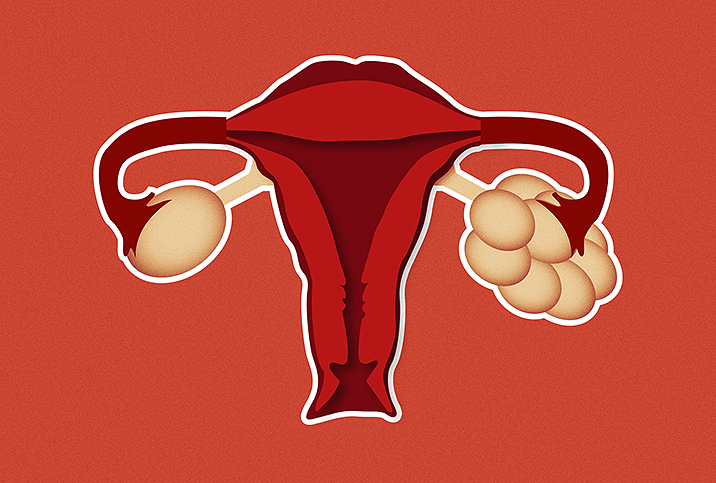Is There a Link Between Infertility and Higher Stroke Risk?

Stroke, in which part of the brain loses blood supply, affects about 1 in 5 women in the United States and is the fifth-leading cause of death, according to the Centers for Disease Control and Prevention (CDC). A new study published in the British Medical Journal (BMJ) indicated infertility, recurrent miscarriages and stillbirth are among the many factors associated with a higher risk of stroke.
Wendy Kuohung, M.D., the director of reproductive endocrinology and infertility and an associate professor of obstetrics and gynecology at Boston University School of Medicine, applauded the study's scope and applicability, calling the research "really significant."
The study was observational, so the researchers could not establish causation, but Kuohung said their findings make it clear infertility and higher stroke risk could be linked.
"It's a controversial area whether infertility and recurrent pregnancy loss leads to stroke, but this study is very convincing that infertility, recurrent miscarriage and stillbirth are risk factors for stroke in the future," Kuohung said.
About the study
Researchers analyzed data from eight large, long-term studies from seven countries (Australia, China, Japan, Netherlands, Sweden, the United Kingdom and the U.S.). Participants included more than 618,000 women ages 32 to 73 with a history of infertility, miscarriage or stillbirth.
The study excluded women who had had a nonfatal stroke before age 40 because they might have had the stroke before establishing a history of infertility or pregnancy loss. The researchers also accounted for various potential influences, including smoking status, ethnicity, weight and known health conditions.
The researchers used questionnaires, hospital records and national patient registers to collect data on nonfatal strokes and stroke subtypes. They identified fatal strokes using death records. Altogether, they found 2.8 percent of participants had at least one nonfatal stroke, and 0.7 percent had a fatal stroke.
Women who had recurrent miscarriages—three or more—were 35 percent more likely to experience a nonfatal stroke and 82 percent more likely to have a fatal stroke than those who had been pregnant but never miscarried.
People with a history of stillbirth were 31 percent more likely to have a nonfatal stroke compared with those who never had a stillbirth. Those who had two or more stillbirths had a 77 percent higher risk of a nonfatal ischemic stroke and a 44 percent higher risk of a hemorrhagic fatal stroke. Women who had experienced infertility were 14 percent more likely to have a nonfatal stroke than those without fertility issues.
Gita Mishra, Ph.D., a professor of life course epidemiology at the University of Queensland in Australia, was the lead study author. She and her colleagues had previously published a meta-analysis that showed a correlation between stroke risk and pregnancy loss. But few studies have analyzed stroke subtypes.
"We wanted to provide robust evidence on the relationship between pregnancy loss—miscarriages and stillbirths—and the risk of stroke, including stroke subtype, in later life," Mishra said.
As for why certain types of infertility were associated with higher stroke risk, Mishra said that while the study established a "robust association at the population level," more research is needed.
"To understand the mechanisms, research needs to be done at the molecular level, including understanding the role of genetic factors," Mishra added.
Possible reasons for the connection
Most strokes occur because of cardiovascular issues such as hypertension, but several factors can contribute, including diabetes, smoking and certain autoimmune and endocrine disorders. Pregnancy and hormonal birth control use can also increase stroke risk in the short term. However, the risk typically dissipates once a person is no longer pregnant or stops taking the medication.
"It is believed that both pregnancy and combined oral contraceptives can impact our coagulation factors, increasing the possibility for clotting, and can impact our blood pressure, two independent mechanisms contributing to stroke risks," said Sameena Rahman, M.D., an OB-GYN and the founder of Center for Gynecology and Cosmetics in Chicago.
She added that pregnancy can also affect cardiovascular function and cause inflammation and endothelial dysfunction, the narrowing of the heart's blood vessels.
Several chronic conditions that can increase a person's risk of stroke later in life also affect fertility and pregnancy, including:
- Polycystic ovary syndrome (PCOS)
- Antiphospholipid syndrome
- Premature menopause
- Primary ovarian insufficiency (POI)
- Endothelial dysfunction
"The well-known association is with PCOS. We know that women with PCOS have an increased risk of infertility, and we also know that women with PCOS are at a higher risk of diabetes, which is an established risk factor for stroke," Mishra said. "Similarly, women with premature ovarian insufficiency—natural menopause before the age of 40 years—experience infertility a lot earlier than other women, and our results have shown that POI is associated with the risk of stroke."
Kuohung explained that PCOS is associated with a higher risk of metabolic syndrome, which she described as the triad of hypertension, diabetes and high lipids, like hypercholesterolemia, later in life. Metabolic syndrome significantly increases stroke risk.
Kuohung said people with early menopause and primary ovarian insufficiency might also experience increased stroke risk and diminished fertility because of a lack of estrogen. Estrogen is known to protect the heart and vasculature system against various conditions, including stroke. When women undergo menopause, their cardiac and stroke risks become equal to or greater than men who have never had estrogen's protective benefits.
Rahman noted that while there is conflicting data, some previous research demonstrated an association between nulliparity—never having a pregnancy—and breast and ovarian cancer. Infertility is also a risk factor for ovarian cancer.
Kuohung said another potential factor the researchers didn't include is stress, which can affect heart health and fertility.
"We know increased stress increases stroke risk and infertility. Recurrent miscarriages and stillbirths are incredibly stressful events in a woman's life," she said. "That kind of thing is very hard to quantify, especially if you're doing questionnaires many years later, but I think that should also be considered."
Certain fertility treatments might also have some impact, she said.
How to decrease stroke risk
Although some risk factors are uncontrollable, an estimated 80 percent of strokes are preventable, according to the CDC.
Kuohung, Rahman and Mishra said knowing infertility and higher stroke risk are linked is crucial because it enables healthcare providers to counsel patients appropriately.
Fertility specialists' primary goal is to help a patient get pregnant, Kuohung said, but it's also essential to consider her "global health."
She said some conditions, such as early menopause and clotting disorders, are out of a person's control. But modifying risk factors, like eating a healthy diet, exercising regularly and not smoking, can reduce the likelihood of stroke later in life. Rahman added that decreasing stress and alcohol consumption could help as well.
"It is important that doctors take a thorough reproductive history from their patients," Mishra said. "If women have had any of these conditions, they should be aware that these women are at an increased risk of cardiovascular disease and to monitor them for other changes, such as the development of high blood pressure, diabetes and high cholesterol."
In short, patients can lower their risk of stroke by making healthy lifestyle choices.


















